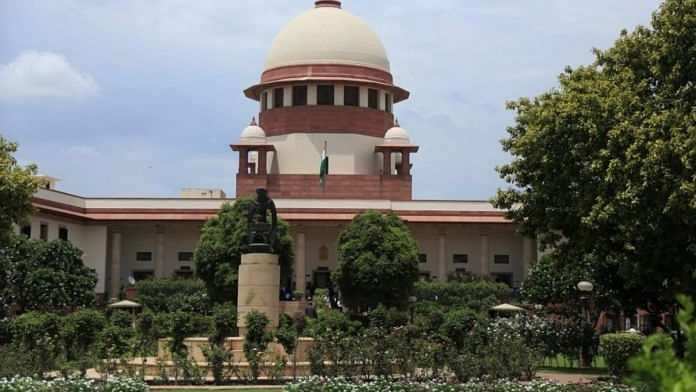New Delhi: Non-Government Organisations (NGOs) receiving substantial financing from the government are bound to give information to the public under the RTI Act, the Supreme Court held Tuesday.
The top court said that institutions like schools, colleges and hospitals which receive substantial aid from the government both directly or indirectly in the form of land at discounted rate are also bound to give information to the citizens under the Right to Information (RTI) Act.
A bench of Justices Deepak Gupta and Aniruddha Bose said, “If NGOs or other bodies get substantial finance from the Government, we find no reason why any citizen cannot ask for information to find out whether his/her money which has been given to an NGO or any other body is being used for the requisite purpose or not”.
The top court said the RTI Act was enacted with the purpose of bringing transparency in public dealings and probity in public life.
“We have no hesitation in holding that an NGO substantially financed, directly or indirectly, by funds provided by the appropriate government would be a public authority amenable to the provisions of the Act,” it said.
The bench was dealing with an issue on whether NGOs substantially financed by the government fall within the ambit of ‘public authority’ under provisions of the Right to Information Act, 2005.
Several schools and colleges and associations running these educational institution have moved the apex court claiming that NGOs are not covered under the RTI Act.
The bench said that the bodies and NGOs mentioned in the Act as ‘public authority’ are in addition to those established or constituted by or under the Constitution; by any other law made by Parliament; by any other law made by state legislature and by notification issued or order made by the appropriate government.
It said that the principle of purposive construction of a statute is a well recognised principle which has been incorporated in our jurisprudence.
“While giving a purposive interpretation, a court is required to place itself in the chair of the legislature or author of the statute”, it said and added that the provision should be construed in such a manner to ensure that the object of the Act is fulfilled.
“Obviously, if the language of the Act is clear then the language has to be followed, and the court cannot give its own interpretation. However, if the language admits of two meanings then the court can refer to the Objects and Reasons, and find out the true meaning of the provisions as intended by the authors of the enactment,” it said.
Clarifying the legal position, the bench said that a society which may not be owned or controlled by the government, may be an NGO but if it is substantially financed directly or indirectly by the government it would fall within the ambit of the provisions of the RTI Act.
Dealing with the “substantial financing” aspect, the bench said it does not necessarily have to mean a major portion or more than 50 per cent and no hard and fast rule can be laid down in this regard.
“Substantial financing can be both direct or indirect. To give an example, if a land in a city is given free of cost or on heavy discount to hospitals, educational institutions or such other body, this in itself could also be substantial financing. The very establishment of such an institution, if it is dependent on the largesse of the State in getting the land at a cheap price, would mean that it is substantially financed,” it said.
The bench said that merely because financial contribution of the state comes down during the actual funding, will not by itself mean that the indirect finance given is not to be taken into consideration.
It said, “The value of the land will have to be evaluated not only on the date of allotment but even on the date when the question arises as to whether the said body or NGO is substantially financed”.
The top court held that DAV College Trust and Management Society, New Delhi, which had filed the case, is the Society which runs various colleges/ schools that receives substantial financing from the government and therefore is a public authority within the meaning of the RTI Act.
Also read: Former HC judge who suggested Haryana NRC also wants state-specific ID cards




Before they make rules for everybody else, they should apply RTI to their own functioning. Individual judges shouldn’t be making their own laws. If they feel that a law is needed, they should say so in their rulings and leave it up to the parliament to enact those laws. Others have pointed out how Supreme Court damaged the economy today. If you look deeper, you will also see how crime and corruption is abetted by the deliberate delays in the courts. You will even find how the courts damage the environment with poorly thought through and expansive rulings. Virtually, everything that is wrong in India is related to the poor functioning of the courts.